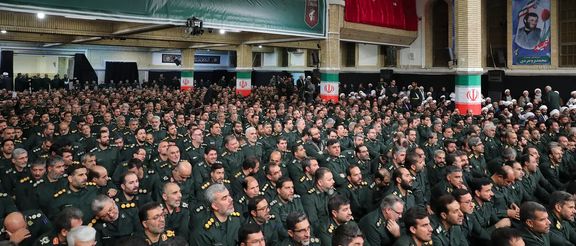Canada's Designation of IRGC Receives Worldwide Praise

Canada's official designation of Iran’s Islamic Revolutionary Guard Corps (IRGC) as a terrorist organization has garnered global praise from political figures both inside and outside Iran.

Canada's official designation of Iran’s Islamic Revolutionary Guard Corps (IRGC) as a terrorist organization has garnered global praise from political figures both inside and outside Iran.
After years of campaigning, Canada's designation follows a series of plots uncovered in Canada where the IRGC is said to have both raised money and recruited agents.
Michael Chong, Conservative Shadow Minister for Foreign Affairs, and Melissa Lantsman, Deputy Leader of the Conservative Party of Canada, said in a joint statement, “Trudeau and his Liberal government took six years to list the IRGC... As a result of that delay, the IRGC has been able to grow stronger as a result of Trudeau’s inaction.”
The US designated the group in 2019 and until now, Canada has imposed multiple rounds of sanctions on several terrorist designated entities that have benefited from the IRGC’s patronage and that have helped advance Iran’s interests and foreign policy, including Hezbollah, Hamas, the Palestinian Islamic Jihad, and the Taliban.
The designation has triggered others to push again for designating the group globally. Senator Claire Chandler, Chair of the Senate Foreign Affairs, Defense, and Trade Committee in Australia, reacted on X by saying, "While Canada acts, in Australia the Albanese Govt is refusing to even consider listing the IRGC."
The Australian Jewish Association also welcomed Canada's decision to declare the IRGC a terrorist organization and called on Australia to do the same. AJA CEO Robert Gregory stated, “The Albanese Government is the weakest link in the West when it comes to standing up to Iranian Regime terrorism and oppression.”
However, designation has been impacted by governments trying to appease the Iranian government amid its ongoing nuclear program. Countries such as France and the UK have seen massive lobbying from parliamentarians only to be pushed back under claims of pursuing a diplomatic solution. However, at the same time it should be noted that UK has issued many sanctions targeting Iran's malign activities and weapons proliferation.
In London, Iranian-born opposition figure and human rights activist Nazanin Boniadi expressed hope that the UK, EU, and Australia would follow suit in listing the IRGC as a terrorist group. The UK's top intelligence chief said last year that Iran was among the biggest foreign threats on UK soil after multiple plots had been foiled, including attacks and threats to Iran International journalists.
Israeli Foreign Minister Yisrael Katz also welcomed Canada's decision, calling the IRGC "the largest terrorist organization in the world."
In the announcement, Canada stated "there are reasonable grounds to believe that the IRGC has knowingly carried out, attempted to carry out, participated in or facilitated a terrorist activity, or has knowingly acted on behalf of, at the direction of, or in association with an entity that has knowingly carried out terrorist activity".
Journalist and activist Masih Alinejad, who has been the target of multiple assassination plots by the IRGC in the UK and US, also welcomed the Canadian government’s decision and called on G7 countries to follow the US and Canada in this regard.
"This is a step that took many years to come together. But better late than never," she said. "I want to strongly urge the rest of the G7 countries to follow the US and Canada’s lead to also designatie the IRGC as a terrorist organization."
Exiled Crown Prince Reza Pahlavi also praised the decision, calling it "an important but overdue step" in holding the "criminal" Islamic Republic regime accountable.
Iran’s Foreign Ministry Spokesman Nasser Kanaani condemned the move as "disgusting." He stated, “This irresponsible and provocative move continues the wrong path that the Canadian government has pursued for over a decade.”
Kazem Gharibabadi, Deputy for International Affairs of the Judiciary, also condemned Canada’s "hostile" decision, stating that the IRGC "is responsible for guarding Iran's national security and confronting terrorism in the region."